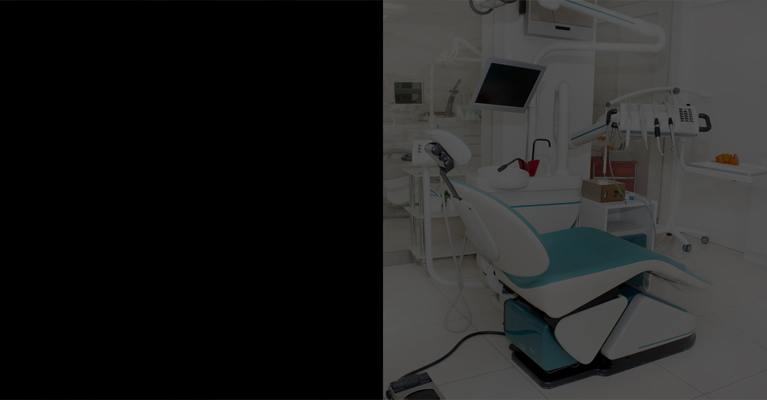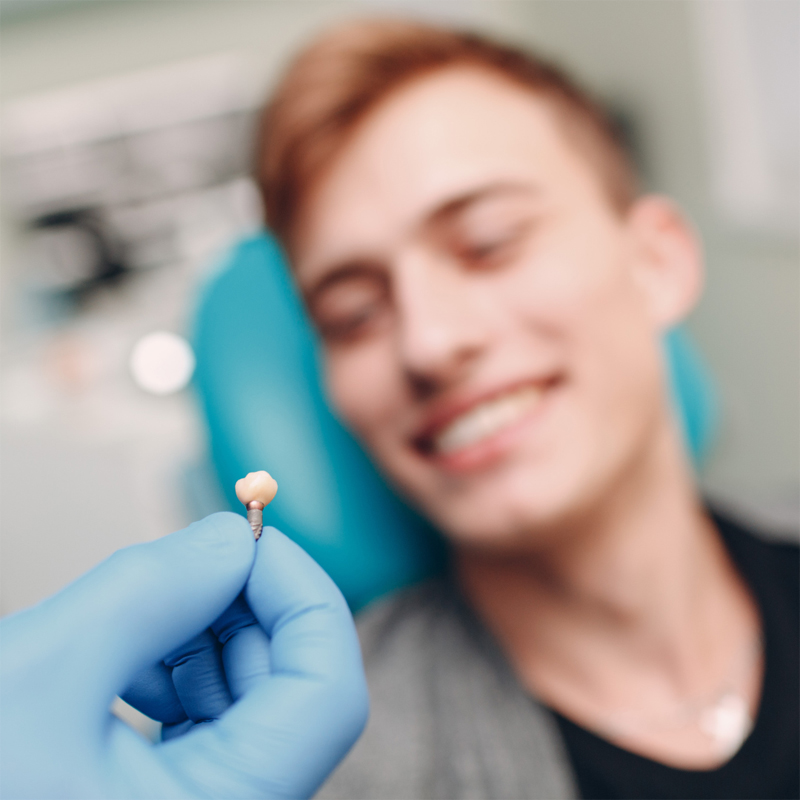















The most common causes of implant failure are poor oral hygiene, history of periodontitis, and smoking. If tooth cleaning is poor, bacteria will build up on the implant surface and cause inflammation of the mucous membrane surrounding the implant – this is known as peri-implant mucositis. If left untreated, mucositis can progress to a more dangerous condition called peri-implantitis, in which there is greater inflammation and bone around the implant is lost. Eventually, the implant loses its anchorage in the bone and becomes loose, which means it will have to be replaced – and this could require additional surgery to restore the lost bone.
It is important to note that peri-implant diseases can develop and damage tissues and bone much more rapidly than is the case with periodontitis. In addition, peri-implantitis is usually much more difficult to treat than periodontitis.
Having periodontitis increases the risk of complications with dental implants. For this reason, not only must a patient be free of periodontitis before an implant can be placed, but they also need to keep their gums and natural teeth healthy to avoid any recurrence of the disease. In patients with periodontitis around 22% of implants develop peri-implantitis. So, good oral hygiene at home and regular check-ups with your dentist, periodontist, or dental hygienist are essential.

It may not always be easy for you to detect when mucositis or peri-implantitis is present. Warning signs include:
Regular check-up visits with your dentist will help ensure that any problems are picked up early and thus help prevent the onset of peri-implant mucositis or peri-implantitis. If you notice any signs of inflammation around your implant, it is vital you make an appointment with your dentist or periodontist as quickly as possible.
Like gingivitis, peri-implant mucositis is prevented and treated by good oral hygiene and by professional cleaning, which should be done at least twice a year.
Patients who have lost teeth because of periodontitis should keep in mind that implants are less resistant to the development and progression of disease than teeth. This means that implants need to be carefully monitored to prevent problems around implants or to stop them at an early stage.
If peri-implant mucositis progresses and turns into peri-implantitis several approaches, depending on the severity of the bone loss around the implant, can be adopted.
In fact, when treating peri-implantitis there is usually a combination of these different procedures.
It is of great importance that the gum around the implant is thick and non-mobile (“keratinised”), as this has been shown to prevent and decrease bone loss around the implants.
In many peri-implantitis cases, there is a lack of proper soft tissue around the implants. This can be corrected using various techniques, of which the most common is using grafts taken from the patient’s palate. Recently, collagen-based grafts derived from animals have been used as an alternative way to reconstruct the soft tissues around implants.
All this means that many steps are required to treat peri-implantitis, return a patient to peri-implant health, and prolong the life of an implant. Some cases will require only non-surgical therapy while others will need additional treatment.
The earlier that peri-implant mucositis and peri-implantitis are detected, the better are the chances of successful treatment.
But better still is preventing disease in the first place, through correct oral hygiene and regular professional cleaning of teeth, implants, and gums.

Refer patients for:
Teddington Dental
Sheen Dental
Sunningdale Dental Practice
@Teddington 020 8977 2911
@Sheen 020 8876 5277
@Sunningdale 01344 620526